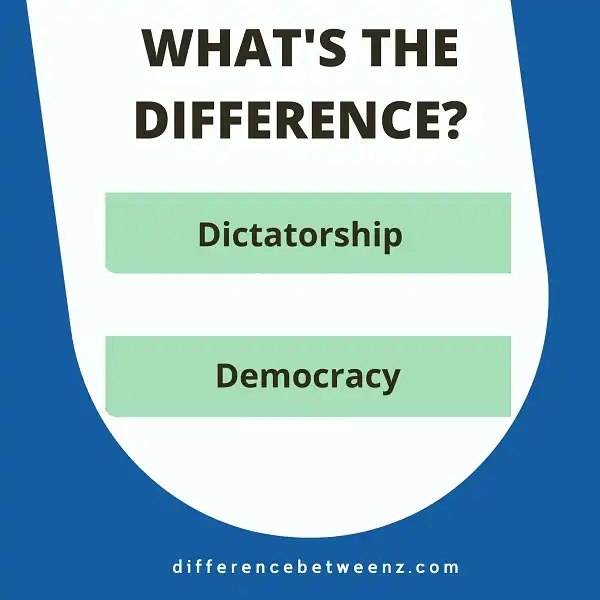Some people might say that dictatorship and democracy are two words that mean the same thing. This, however, is not the case. There is a big difference between the two types of government. In this blog post, we will explore what those differences are. We will also look at some examples to help illustrate our points. So, let’s get started!
What is Dictatorship?
A dictatorship is a form of government in which one person or a small group of people hold absolute power. Dictators often come to power through force or through manipulation of the electoral process. Once in power, dictators typically rule by terror, using secret police and propaganda to maintain control. Dictatorships can be found throughout the world, though they are most common in countries with weak democratic institutions. Many dictatorships have been toppled in recent years, thanks in part to the growing power of social media and the rise of grassroots pro-democracy movements. Nevertheless, dictatorship remains a significant global problem, with millions of people living under oppressive regimes.
What is Democracy?
Democracy is a Greek word meaning “rule by the people.” In a democracy, the people vote for their leaders and have a say in the decisions that affect them. Democracy is based on the idea that all people are equal and should have an equal say in the decisions that affect their lives. There are different types of democracies, but all democracies have certain things in common: freedom of speech, freedom of assembly, and the rule of law. Democracy is not perfect, but it is still the best system we have for governing ourselves. It is a system that allows us to choose our own leaders and hold them accountable for their actions. Democracy is also a system that protects our rights and gives us a say in our own future.
Difference between Dictatorship and Democracy
Dictatorship and democracy are two very different forms of government. Dictatorships are usually characterized by a single ruler who has absolute power. democracies, on the other hand, are governed by the people or their representatives. In a dictatorship, the ruler may make decisions without consulting the people. In a democracy, the people have a say in how their country is run. Dictatorships often arise in times of crisis, when people are looking for someone to lead them through difficult times. Democracies are more stable and allow for more personal freedom. However, they can be slow to make decisions and may be less efficient than dictatorships. Ultimately, it is up to the people to decide which form of government is best for them.
Conclusion
Despite the many benefits of democracy, it is not without its flaws. Dictatorship has been shown to be a more efficient form of government in some cases, but it also comes with a number of drawbacks. It is important to understand the differences between these two forms of government so that you can make an informed decision about which one is best for your country or community.


